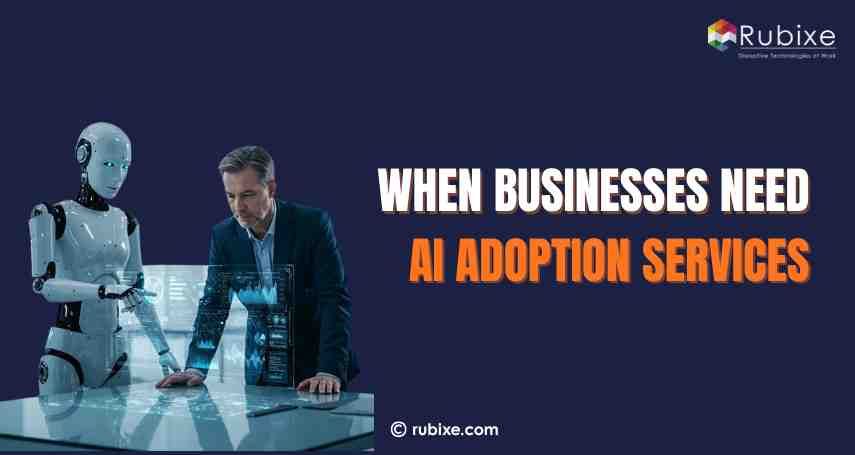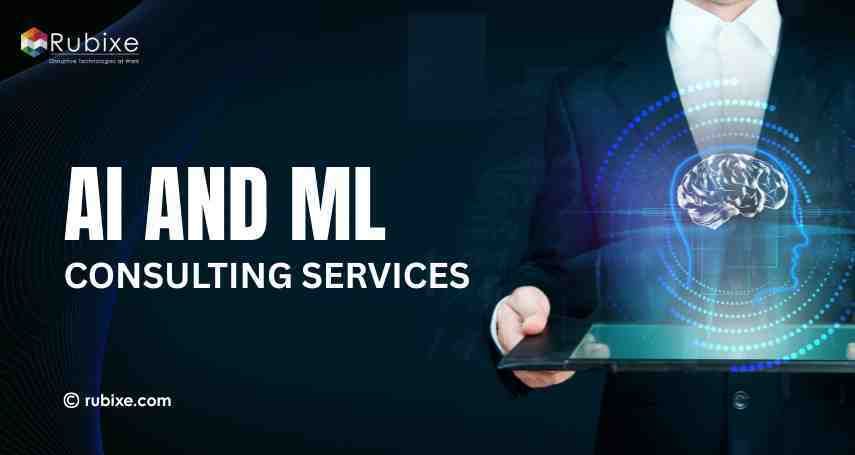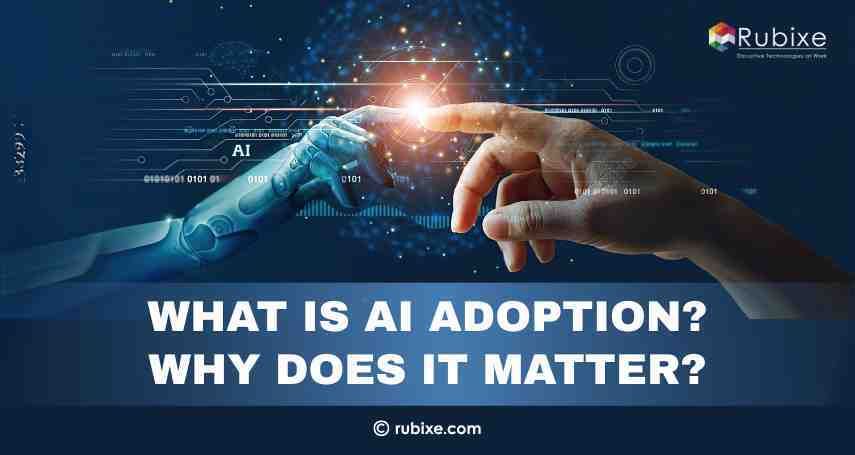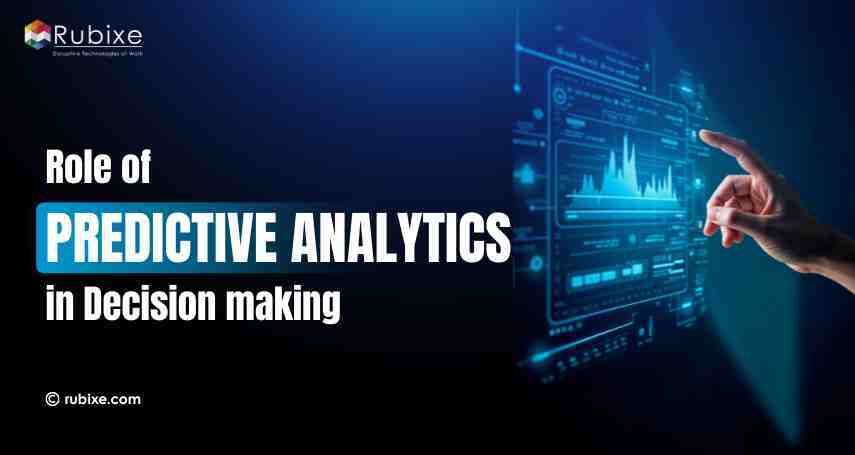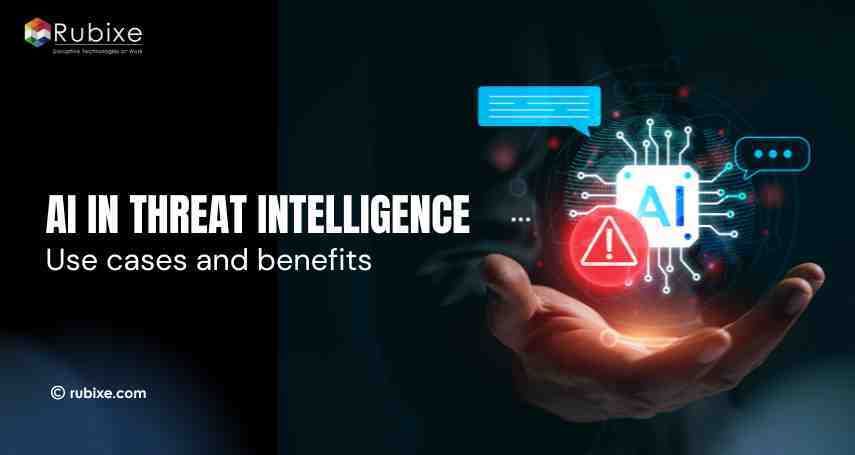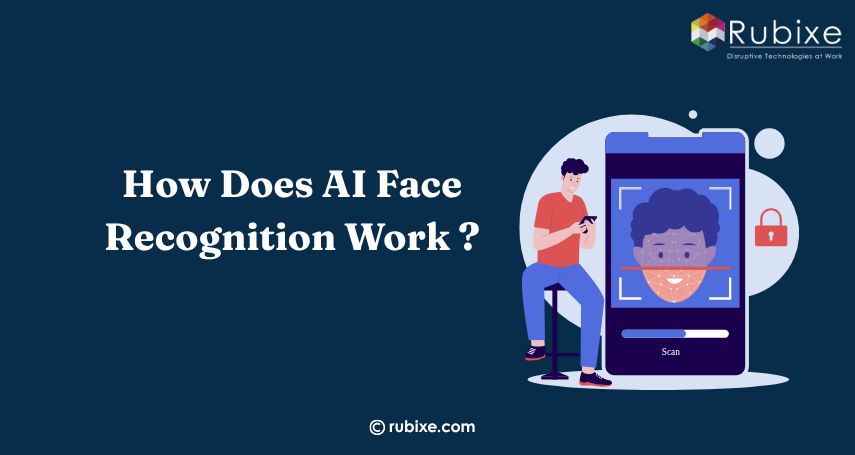Understanding AI Face Recognition Technology
AI face recognition technology improves accuracy, enhances security, and streamlines operations across industries, with growing focus on ethics, privacy, and responsible use
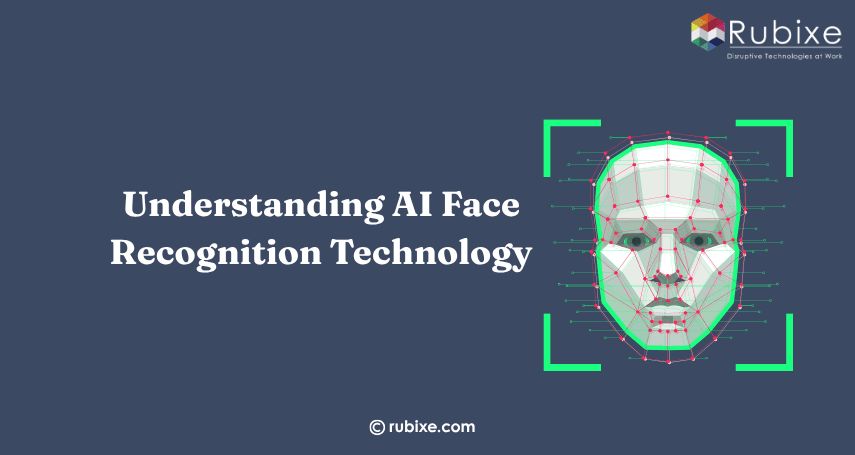
AI is changing facial recognition technology, making it quicker and more accurate. This improvement is having a big impact on how events are managed. Many countries around have started using AI face recognition to improve safety and make things run more smoothly. This shows how important it is to understand the role AI now plays in the events industry.
Overview of Artificial Intelligence Face Detection
Facial recognition uses unique facial features to identify people quickly and accurately. Powered by AI and machine learning, it learns and improves over time by analyzing facial data. This technology enhances security and speeds up check-ins, making it an essential tool for modern event management.
How Artificial Intelligence Facial Recognition Works
AI face recognition works through several key stages that enable accurate and efficient identification. It is increasingly used in sectors like security, events, and customer service due to its speed and reliability. Here’s how it functions:
-
Detection of Facial Features: The system scans for key facial elements such as the eyes, nose, and mouth to create a digital facial map.
-
Recognition Techniques:
-
Feature-Based: Focuses on specific facial landmarks and their spatial arrangement.
-
Appearance-Based: Analyzes the overall look of the face to detect patterns.
-
AI Algorithms for Recognition: Deep learning and neural networks process facial data, enabling accurate recognition across varying conditions like lighting or angles.
-
Data Processing and Matching: Captured facial data is compared against a stored database of profiles for real-time identification.
-
Continuous Learning: The system improves over time by learning from new inputs, boosting accuracy, and increasing adaptability.
Applications of AI Face Recognition
AI face recognition is widely adopted across multiple industries due to its speed, accuracy, and automation capabilities. Here are some key applications:
-
Event Management: AI face recognition speeds up check-ins and enhances security at large-scale events.
-
Security and Surveillance: Used in public and private spaces for real-time threat detection and monitoring.
-
Law Enforcement: Assists in identifying suspects and locating missing persons through facial data analysis.
-
Retail: Enables personalized customer experiences and helps prevent shoplifting through in-store monitoring.
-
Healthcare: Supports patient identification, access control, and monitoring of restricted areas.
-
Banking and Finance: Secures transactions and account access through biometric authentication.
-
Smart Devices and IoT: Unlock phones and systems using facial authentication for a seamless user experience.
-
Education: Tracks attendance and enhances campus security with facial recognition-enabled systems.
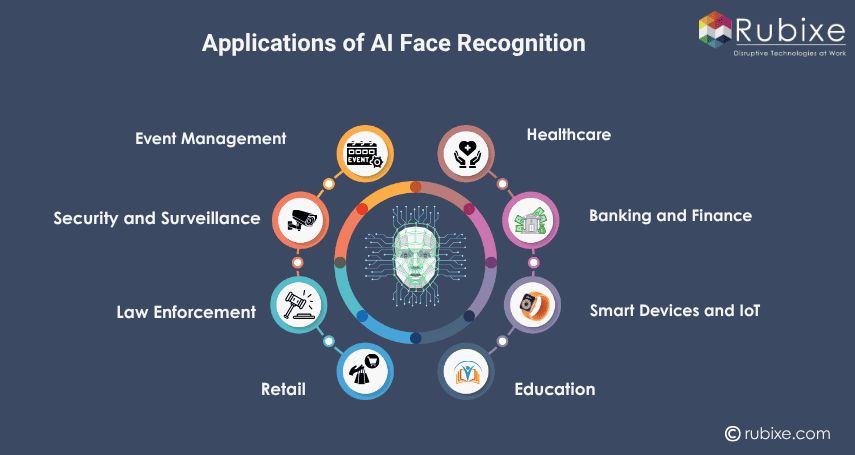
Responsible Use and Future Outlook of AI Face Recognition
As AI face recognition continues to advance, organizations need to implement this technology responsibly. With increasing adoption across industries—especially in event management—ethical deployment builds user trust while unlocking its full potential. Below are key principles to guide the responsible use and development of facial recognition systems:
-
Transparency and Consent: Communicate how facial data is collected and used. Always seek informed consent from participants before implementation.
-
Ethical Deployment: Apply industry standards and regularly audit systems to detect and reduce algorithmic bias or inaccuracies.
-
Data Privacy and Security: Use encryption, access controls, and secure data storage to protect sensitive facial data.
-
Stakeholder Involvement: Engage with attendees, organizers, and relevant communities to shape inclusive and transparent policies.
-
Ongoing Innovation: Support R&D that enhances algorithm fairness, adaptability to diverse populations, and accuracy in varied conditions.
-
Compliance with Regulations: Stay updated on global privacy laws and ethical frameworks to ensure the responsible use of AI face recognition technologies.
Networking Opportunities
AI face recognition isn’t just improving event security and check-in efficiency—it’s also enhancing how attendees connect and network.
-
Smart Matchmaking: AI-driven platforms can analyze attendee profiles and interests, recommending relevant people to connect with during the event.
-
Frictionless Check-Ins: With instant, contactless entry, attendees spend less time in queues and more time engaging with others.
-
Personalized Interactions: Facial recognition allows for tailored greetings and targeted content, making interactions feel more personal and relevant.
-
Real-Time Engagement Tracking: Event organizers can see who’s connecting, attending sessions, and engaging in real time, enabling them to facilitate better networking experiences.
-
Follow-Up Made Easy: Integrated AI systems can log interactions and help attendees follow up post-event with personalized messaging or contact details.
Challenges and Ethical Concerns of AI Face Recognition
As AI face recognition becomes more widespread, several challenges and ethical issues must be addressed to ensure fair and responsible use. While the technology offers efficiency and convenience, it also raises concerns about privacy, bias, and misuse.
-
Privacy Invasion: One of the main concerns is the potential for unauthorized surveillance and data collection without user consent.
-
Bias and Discrimination: Facial recognition systems can reflect or even amplify biases present in the training data, leading to unfair treatment of certain demographic groups.
-
Lack of Regulation: In many regions, laws around the use of AI face recognition are still evolving, which can result in misuse or inconsistent practices.
-
Data Security Risks: Storing and processing facial data makes systems vulnerable to cyberattacks and data breaches if not properly secured.
-
Informed Consent: Users are not always made fully aware of when and how their facial data is being used, raising ethical transparency concerns.
-
False Positives/Negatives: Recognition errors can lead to serious consequences, especially in high-stakes areas like law enforcement or airport security.
-
Over-Reliance on Technology: Solely depending on automated facial recognition without human oversight may lead to errors going unchecked.
Future Trends in AI Face Recognition
As technology evolves, AI face recognition is expected to become even more accurate, accessible, and seamlessly integrated into daily life. These advancements are driving the growth of AI services that support secure access, identity verification, and personalized experiences across industries. Here are some emerging trends shaping the future of this technology:
-
Edge AI Integration: Facial recognition systems are moving toward on-device (edge) processing, reducing latency and improving data privacy by limiting cloud dependence.
-
Emotion and Behavior Analysis: Future systems may not only identify who a person is but also interpret their emotional state, enabling deeper personalization and customer engagement.
-
Multimodal Biometric Systems: AI will increasingly combine facial recognition with other biometrics—like voice or iris scans—for stronger, multi-layered authentication.
-
Augmented and Virtual Reality (AR/VR): Facial recognition is being integrated into AR/VR platforms for personalized avatars, adaptive interfaces, and secure access in immersive environments.
-
Wider Industry Integration: Beyond events and security, expect AI face recognition in areas like hospitality, transportation, and personalized advertising.
-
Greater Focus on AI Ethics: With public awareness rising, future deployments will likely include built-in fairness checks, bias mitigation tools, and enhanced user consent mechanisms
As an AI consulting company, we help businesses harness AI face recognition responsibly, enhancing security, efficiency, and user experience while ensuring ethical use, data privacy, and future-ready AI services.

